
Latest News Regarding
Horn of Africa
The Forgotten War: BBC Coverage Inside Sudan
The Forgotten War: BBC Coverage Inside Sudan
Source; BBC TV ran a 6-minute clip on 19 March 2024 titled “Millions Face Starvation in Sudan as Warring Factions Block Aid Delivery.”
This coverage is one of the few occasions when a Western media organization has reported recently from inside Sudan, including Khartoum and Omdurman. The clip makes the point that media coverage of the situation in Ukraine, Gaza, and now Haiti has drowned out the horrific situation in Sudan.
Somaliland President Muse Bihi and Waddani Party chairman discuss peaceful elections
Somaliland President Muse Bihi and Waddani Party chairman discuss peaceful elections

Source: Hiiraan Online, Thursday March 21, 2024
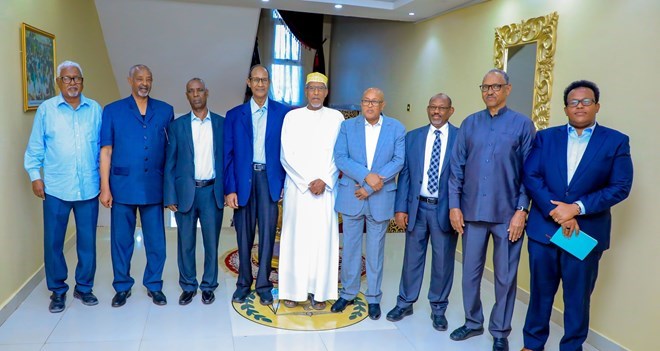
Hargeisa (HOL)—Somaliland President Muse Bihi Abdi and the chairman of the Waddani Party, Adirahman Mohamed Abdillahi Irro, discussed the upcoming elections, focusing on ensuring peaceful competition and defending the existence of the breakaway Somaliland region.
The former President of Somaliland, Dahir Riyale Kaahin, organized Wednesday’s meeting, which also addressed the political discord between the opposition Waddani Party and President Bihi, who also leads the ruling party of Somaliland.
According to a press release from the presidential office, both parties agreed to unite against threats to Somaliland, emphasizing the importance of conducting the election campaign peacefully and accepting the election results. They also decided to hold further meetings within the next three days to discuss these implementation points further.
President Muse Bihi expressed gratitude to former President Dahir Rayale Kaahin for facilitating the meeting and promoting the common interests of Somaliland.
Two weeks before the meeting, President Bihi signed two amended electoral laws: the Electoral and Voter Registration Law (number 91/2023) and the Regulation of Organizations and Political Parties Law (number 14/2023). Following this, the chairman of Somaliland’s National Electoral Commission (SLNEC) informed local media that the commission is fully prepared for the dual elections scheduled for November 13, 2024.
Ethiopia security forces arrest 50 suspects for alleged terror activities in Addis Ababa
Ethiopia security forces arrest 50 suspects for alleged terror activities in Addis Ababa

Source: Hiiraan Online, Thursday March 21, 2024
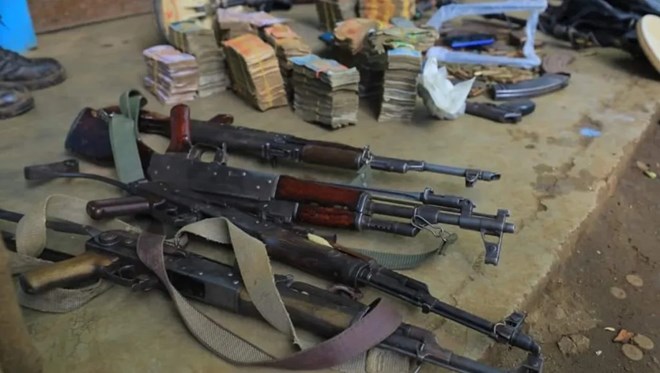
The suspects were found in possession of various weapons, currency notes from different countries, bank books, and other documents (Photo: Ethiopian Federal Police/Facebook)
Addis Ababa (HOL) – The Joint Security and Intelligence Task Force has apprehended 50 people suspected of belonging to a covert group plotting terror and violence in Addis Ababa city and the bordering areas of the Oromia region.
According to a statement released on Tuesday, the task force revealed that the group had been planning acts of terror. Recent coordinated efforts by regional and federal security forces thwarted the group’s attempts to incite chaos and violence in the Amhara region.
The clandestine group reportedly operated from bases in Addis Ababa and Menjar Shenkora in the North Shoa zone of the Amhara region. They allegedly trained a special armed force and collaborated with certain followers of the Ethiopian Orthodox Tewahedo Church, using church premises as a center for their covert activities.
After secretly monitoring the suspects for five months, security forces seized various weapons, including firearms and explosives, as well as currency from different countries, bank records, and assorted documents.
During the operation, security forces arrested Nigatu Gebreyesus, also known as Abraham, identified as the group’s leader, along with Fasil Getachew and Tewolde Birhan, who were responsible for finance, logistics, and resource mobilization.
The statement also implicated Dawit Woldegiorgis, former military personnel, and media personalities Habtamu Ayalew and Mesay Mekonnen as coordinators of the covert group based in foreign countries.
They were alleged to have established connections with an armed group led by former opposition party leader Eskindir Nega. Additionally, the statement mentioned Wendosen Aseffa (PhD), assistant professor Sisay Awugechew, and Yordanos Aleme, who had been imprisoned since August 2023, as previous group leaders.
Somali pirates’ return adds to crisis for global shipping companies
Source: Reuters, THURSDAY – MARCH 21, 2024
Somali pirates’ return adds to crisis for global shipping companies
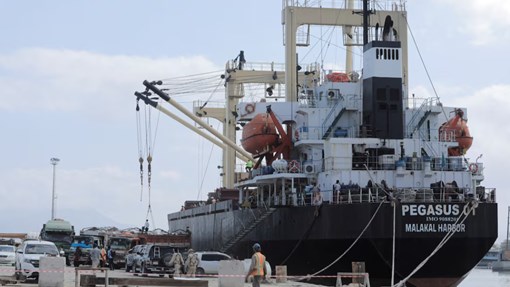
As a speed boat carrying more than a dozen Somali pirates bore down on their position in the western Indian Ocean, the crew of a Bangladeshi-owned bulk carrier sent out a distress signal and called an emergency hotline.
UN weather agency issues ‘red alert’ on climate change after record heat
UN weather agency issues ‘red alert’ on climate change after record heat
Source; The World Meteorological Organization warns there is a ‘high probability’ that 2024 will be another record-hot year.
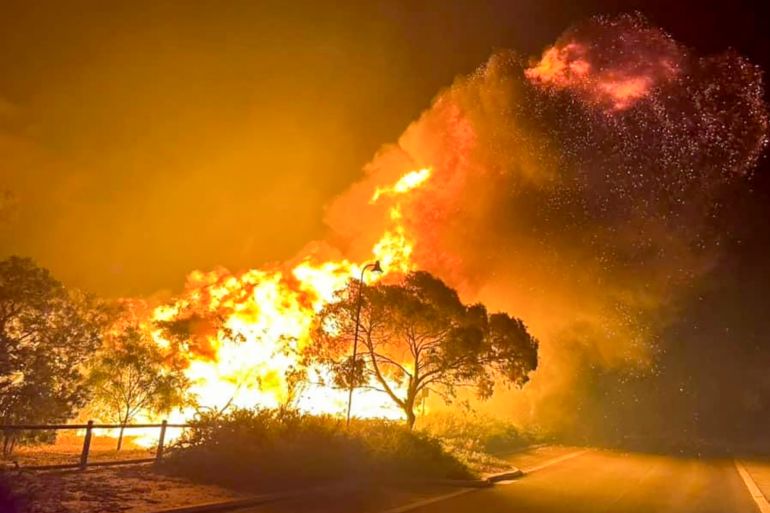
Published On 19 Mar 202419 Mar 2024
The United Nations’ weather agency is sounding a “red alert” about global warming, citing record-breaking increases last year in greenhouse gases, land and water temperatures and the melting of glaciers and sea ice.
The World Meteorological Organization (WMO) said in a report released on Tuesday that there is a “high probability” that 2024 will be another record-hot year and warned that the world’s efforts to reverse the trend have been inadequate.
KEEP READING
list of 4 itemslist 1 of 4
How is Palestine connected to the climate justice movement?
list 2 of 4
Climate change pushes Malaysia’s coastal fishermen away from the sea
list 3 of 4
Climate change threatens EU with mass deaths and huge costs: Report
list 4 of 4
Coffee’s in danger: Can Vietnam’s Robusta save it from climate change?
end of list
The Geneva-based agency voiced concerns in its State of the Global Climate report that a crucial climate goal is increasingly in jeopardy: limiting planetary warming to no more than 1.5 degrees Celsius (2.7 degrees Fahrenheit) from pre-industrial levels.
“Never have we been so close – albeit on a temporary basis at the moment – to the 1.5C lower limit of the Paris Agreement on climate change,” said Celeste Saulo, the agency’s secretary-general. “The WMO community is sounding the red alert to the world.”
The 12-month period from March 2023 to February 2024 pushed beyond that 1.5-degree limit, averaging 1.56C (2.81F) higher, according to the European Union’s Copernicus Climate Change Service.
It said the calendar year 2023 was just below 1.5C at 1.48C (2.66 F), but a record-breaking start to this year pushed the 12-month average beyond that level.

“Earth’s issuing a distress call,” UN Secretary-General Antonio Guterres said. “The latest State of the Global Climate report shows a planet on the brink. Fossil fuel pollution is sending climate chaos off the charts.”
Omar Baddour, WMO’s chief of climate monitoring, said the year after an El Nino event – the cyclical warming of the Pacific Ocean that affects global weather patterns – normally tends to be warmer.
“So we cannot say definitively that 2024 is going to be the warmest year. But what I would say: There is a high probability that 2024 will again break the record of 2023, but let’s wait and see,” he said. “January was the warmest January on record. So the records are still being broken.”
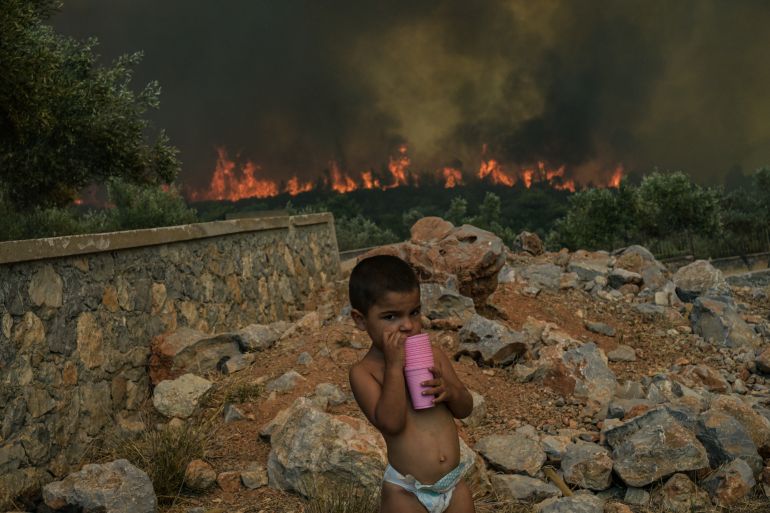
The latest WMO findings are especially striking when compiled in a single report.
UN reports 35 percent increase in people affected by South Sudan violence
Source: UN reports 35 percent increase in people affected by South Sudan violence
New report says civilians are bearing the brunt of a surge in intercommunal conflict in pockets of South Sudan.
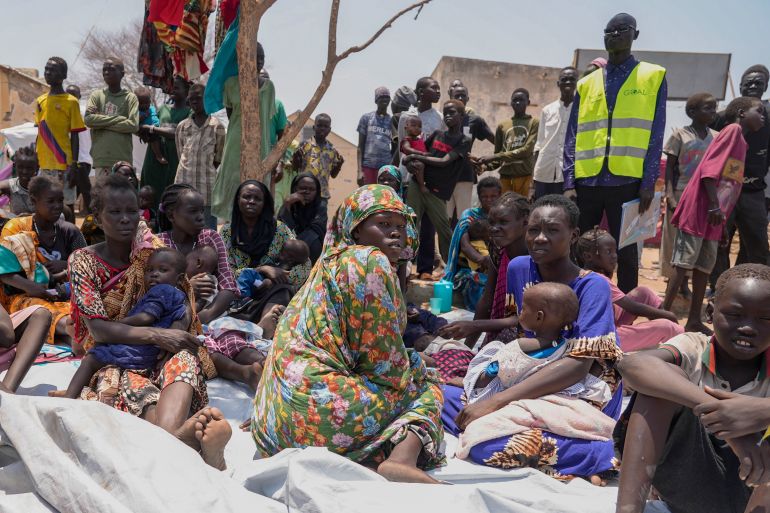
Published On 19 Mar 202419 Mar 2024
The number of people affected by violence in South Sudan surged by 35 percent in the last three months of 2023 due to intercommunal conflict, the United Nations has said.
The UN Mission in South Sudan (UNMISS) documented 233 incidents of violence affecting 862 people. In a report released on Monday, it said 406 people were killed, 293 were injured, 100 were abducted and 63 were subjected to conflict-related sexual violence.
KEEP READING
list of 4 itemslist 1 of 4
Photos: Inside South Sudan’s worsening refugee crisis, in Renk and Maban
list 2 of 4
Sudanese democracy should not be US-made
list 3 of 4
UN official warns of possible war crimes, rape as a weapon in Sudan
list 4 of 4
Photos: Sudanese refugees face gruelling wait in crammed South Sudan camps
end of list
There was a 35 percent increase in the number of victims reported from the previous quarter.
The report also said that intercommunal violence by community-based militias or civil defence groups accounted for 86 percent of all civilians affected.
More than half of those affected by the violence were caught up in retaliatory attacks related to the border dispute between rival factions of the Dinka ethnic group – the Twic Dinka from Warrap state – the main hot spot for conflict – and the Ngok Dinka from the oil-rich region of Abyei, with 263 killed and 186 injured, the report said.
“Intercommunal conflict continues to cause immense harm to communities across the country,” Nicholas Haysom, the head of UNMISS, said.
South Sudan is to hold elections later this year, the first since a 2018 peace deal between President Salva Kiir Mayardit and his former rival, Riek Machar, that ended a five-year conflict that killed hundreds of thousands.
Violence caused by ethnic tensions and disputes over resources such as land has increased in various parts of the country in recent months, particularly in Abyei.
Straddling an ill-defined border between Sudan and South Sudan, Abyei has been claimed by both countries since South Sudan declared independence from Sudan in 2011.
Haysom urged the South Sudan government to intervene and “resolve underlying grievances and build peace”.
Outrage Among Journalists: Somali Media Council’s Illegitimate Appointments Threaten Press Freedom

Source. Horn of Africa Observer, Thursday March 14, 2024 – 22:18:21 in Latest News by Horn Observer Contributor
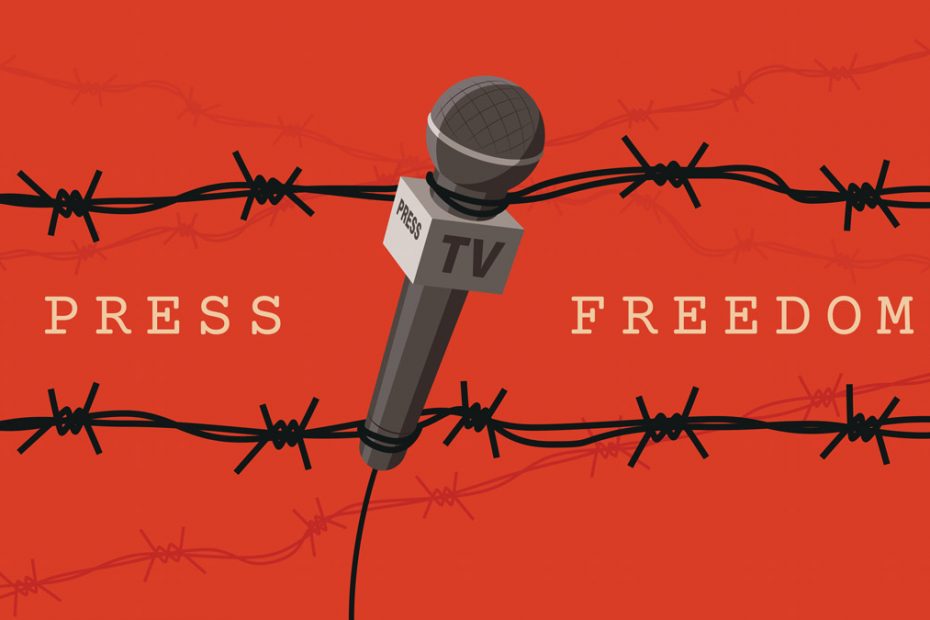

The National Union of Somali Journalists (NUSOJ) was utterly surprised by today’s decision of the Council of Ministers, which proposed nine individuals for the Somali Media Council in clear violation of the legal provisions outlined in Article 14 of the amended media law of 2020.
According to Clause 14(1), the Somali Media Council should comprise nine members: three from public/state media, three from private media, and the remaining three from civil society, including the National Human Rights Commission, National Women’s Organization, and the Somali Bar Association.
Notably, the law erroneously refers to the National Human Rights Commission as a civil society organization, even though it is a statutory body established by law and cannot be considered as a civic society organization. More alarming is the absence of the National Human Rights Commission in the country, yet all nine positions required by law (including the commission’s representation) were filled and submitted to the Council of Ministers. Typically, changing the National Human Rights Commission’s representation would require a law amendment through a parliamentary process.
Clause 14(2) asserts the Somali Media Council’s independence from political and government interference. However, the journalist community was shocked to find a politician (a former senator) among the nine names presented to the Council of Ministers, blatantly compromising the Council’s independence and credibility and exposing it to political influence.
Furthermore, Clause 14(4) mandates that the Somali Media Council’s formation involves consultations among the Minister of Information, media organizations, National Union of Somali Journalists and civil society. Regrettably, these consultations did not occur, and the process was conducted in secrecy, marked by a lack of transparency and neglect of essential perspectives.
“We are profoundly appalled. Having previously raised alarms about the repressive provisions within this amended media law, we are utterly astounded to witness the selection of its nine members through such an unlawful process. While we acknowledge the presence of some colleagues within these nine who possess genuine credibility and integrity in the media, it is beyond belief that nominations were made in complete violation of the law,” stated Omar Faruk Osman, NUSOJ Secretary General.
Clearly, this Somali Media Council was not legally instituted, and therefore it holds no legal standing in the eyes of the law. The approval of such individuals by the Council of Ministers constitutes an unlawful act that could endanger press freedom and completely discredit the Somali Media Council.
NUSOJ, having previously declined to be a member of the media council, has a principled stance and calls on Prime Minister Hamza Abdi Barre to annul the endorsement of these illegally constituted Council members and to ensure strict adherence to the law. The country and the media community cannot afford a new and unnecessary press freedom crisis.
As custodians of the law of the land, NUSOJ appeals to President Hassan Sheikh Mohamud to intervene and refrain from signing this illegally composed media council into a presidential decree, as would normally be required by law. Instead, the union urges the President to ensure that the law, even if it is considered flawed, is respected and press freedom is upheld.
Dropped Charges Against Former Somali Region President Reinforces Impunity
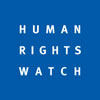
Source. Human Right’s Watch, Saturday March 16, 2024
By Laetitia Bader
Dropped Charges Against Former Somali Region President Reinforces Impunity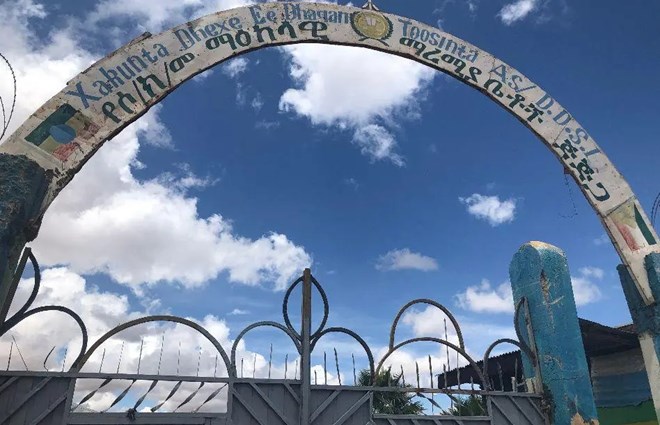
Front gate of Jail Ogaden, May 2019. © 2019 Felix Horne/Human Rights Watch
This week, Ethiopian authorities dropped all charges and released Abdi Mohamoud Omar, also known as “Abdi Illey,” the former president of Ethiopia’s Somali region, after serving more than five years in prison. The action is a setback to ending impunity for crimes involving senior officials.
State media reported that Ethiopia’s Ministry of Justice took the action for the “sake of public interest.”
Federal officials initially arrested Abdi Illey in 2018 for “violations of human rights and inciting ethnic and religious conflict in the Somali region,” and charged him in 2019 for his role during his last days in office, when Somali youth groups loyal to him and Somali regional special forces, called the “Liyu police,” attacked non-Somali groups. The charges also covered the destruction of churches and property in the Somali regional capital of Jigjiga.
But the authorities never brought charges against Abdi Illey for crimes during his decade of abusive rule.
As regional security chief in 2006, and president from 2010-2018, Abdi Illey oversaw and commanded the Liyu police. Human Rights Watch documented that the Liyu police frequently committed serious rights abuses against civilians throughout the Somali region during counterinsurgency campaigns, including extrajudicial killings, torture, and rape, as well as reprisals against local communities.
In 2018, Human Rights Watch reported on the abuses during Abdi Illey’s rule, notably the pattern of torture and abuse in Ethiopia’s notorious Jail Ogaden, where prisoners were denied access to adequate medical care, family, lawyers, and at times, food. Former prisoners implicated Liyu police members, prison guards, and senior Somali region officials in rape, and widespread and routine torture, from which some detainees died. Abdi Illey himself was known to regularly visit the prison.
For victims of abuse under Abdi Illey’s rule, the decision to drop the charges is a devastating blow.
A 42-year-old former prisoner at Jail Ogaden told us: “We cannot forgive him for what he and his [Liyu] police have done to our people. He has destroyed a generation… He must face justice for what he has done.”
By failing to hold Abdi Illey to account for the many rights violations during his rule, the Ethiopian government is sending the message that impunity remains the order of the day.
With the government reportedly just weeks away from launching a nationwide transitional justice policy, the authorities need to reverse course and demonstrate a willingness to tackle accountability for serious abuses.
Central Bank of Somalia orders freeze on accounts of 16 people sanctioned by US Treasury
Central Bank of Somalia orders freeze on accounts of 16 people sanctioned by US Treasury

Source: Hiiraan Online, Saturday March 16, 2024
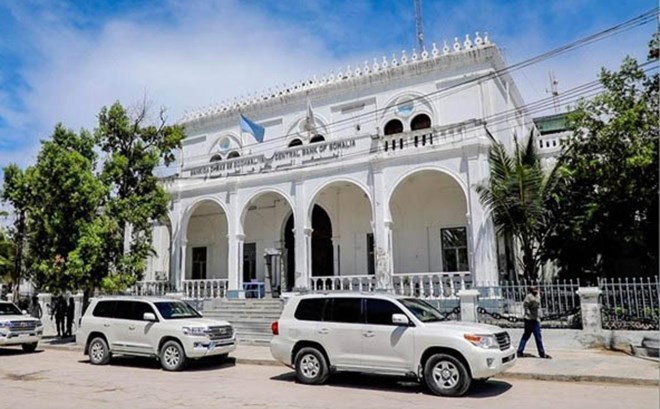
Mogadishu (HOL) – The Central Bank of Somalia has ordered the country’s banks to freeze the funds of 16 people and companies sanctioned by the United States Treasury for laundering money for the al-Shabab group.
The Central Bank on Friday instructed the local banks to terminate any previous business relationships and close the business accounts of the sanctioned people to manage terrorist financing risks.
advertisements
Last week, the Treasury said the “expansive business network” was part of an international fundraising and money-laundering web for the al-Qaida-linked group operating in Somalia and designated a terrorist organization by Washington.
The targeted entities include Dubai-based fintech Haleel Commodities LLC with branches and subsidiaries in Kenya, Somalia, Uganda and Cyprus.
UAE-based Qemat Al Najah General Trading, which served “as an important money laundering node in the network,” and a Kenyan bus company that supported al-Shabaab’s logistics were also slapped with sanctions.
UAE to form Emirati foreign legion with 3,000 recruits to boost military capabilities in Yemen, Somalia
UAE to form Emirati foreign legion with 3,000 recruits to boost military capabilities in Yemen, Somalia

Source: Hiiraan Online, Saturday March 16, 2024
FILE – Three armed mercenaries from private military company Spear Operations Group are seen on a mission in Yemen. The unit hired by the United Arab Emirates, is said to be responsible for political assasinations. CREDIT: Grey Dynamics
Mogadishu (HOL) – The United Arab Emirates (UAE) is reportedly constructing a new elite military unit reminiscent of the French Foreign Legion. According to global defence analysts Intelligence Online, the force will comprise at least 3,000 foreign recruits and aim to bolster the Emirates’ military capabilities. A former French special forces officer is leading the initiative, and recruitment is scheduled between mid-2024 and 2025.
The recruitment process, managed by an Abu Dhabi company, promises well-paid jobs to young men and signifies a notable shift in the UAE’s defence strategy. This new force, dubbed the Emirati Foreign Legion, will reportedly be deployed in Yemen and Somalia, where the UAE has vested interests but faces considerable security challenges.
advertisements
The UAE’s engagement in East Africa, particularly through military and economic means, has been a cornerstone of its foreign policy. The Emirates’ involvement has ranged from training Somali soldiers to establishing military bases and engaging in extensive humanitarian and infrastructure projects. Analysts say the plans align with the UAE’s broader goal of projecting power and countering threats across the region, particularly from Iran-aligned groups like the Houthi movement in Yemen and terrorist factions such as Al Shabaab in Somalia.
The UAE’s presence and actions in the region have sparked controversy. Its military operations and alliances, particularly those supporting non-state actors and engaging in regional politics, have sometimes been at odds with the interests of traditional allies and local sovereignty.
The UAE has come under fire recently for its support of the Sudanese paramilitary group, the Rapid Support Forces (RSF), in its war against the Sudanese army. The UAE has vehemently denied that it is arming the group despite a leaked UN report that said it had “credible” evidence that the Gulf country was providing military support “several times per week” via Amdjarass in northern Chad.
Establishing the Emirati Foreign Legion also raises questions about the evolving nature of international military cooperation and private military contracting. The UAE government’s recruitment of foreign soldiers directly for an indefinite period introduces new dynamics into international defence relationships and mercenary practices.
By operating in the shadows, bypassing conventional military channels, and employing foreign nationals under largely obscured conditions, the UAE is forging a new path that might redefine the boundaries between national armies and private military forces.
The latest initiative is set against a backdrop of previously rorted clandestine activities, as evidenced by the UAE and Egypt’s alleged secret recruitment and training of nearly 3,000 young Somali men in November 2022. The secretive nature of these recruitment drives, coupled with the lack of transparency and accountability, raises significant ethical and legal concerns.
Somalia’s newfound military cooperation with Turkey will also represent a paradigm shift in regional alliances and directly challenge the UAE’s strategic ambitions. The Somalia-Turkey defence agreement, ratified swiftly by Mogadishu, grants Turkey significant military leverage in the region, undermining the UAE’s previous efforts and investments. This agreement, coupled with Ethiopia’s engagement with the breakaway Somaliland state, has recalibrated the balance of power, prompting the UAE to reassess its strategy in the Horn of Africa.
The United Arab Emirates has a record of employing foreign military expertise for its defence and security operations. In 2011, the UAE collaborated with Erik Prince, the controversial founder of Blackwater, to establish a battalion called Reflex Responses, or R2, comprising 800 foreign soldiers. This unit was primarily tasked with internal security, executing special operations, and safeguarding vital assets, such as oil pipelines and high-rise buildings. Prince expanded his role by forming an elite military force under Sheikh Mohammed bin Zayed. This force marked the UAE’s initial foray into foreign military engagements, participating in conflicts in Syria and Yemen.
Additionally, Prince and a former South African special forces officer named Lafras Luitingh would go on to create the Puntland Maritime Police Force with funding from the UAE before the New York Times exposed Prince’s involvement, leading the Emiratis to shut down the Reflex Responses program.
Reactions to this development have been mixed. France, witnessing its former military personnel spearhead this new unit alongside the global defence community, is watching closely. The French Minister of the Armed Forces, Sébastien Lecornu, and the Defence Intelligence and Security Directorate (DRSD) are reportedly investigating the matter, highlighting potential concerns about the implications of this move for regional security and international norms.
Somalia has 99% of $2bn debt cancelled in major boost to fragile recovery
Somalia has 99% of $2bn debt cancelled in major boost to fragile recovery

Faisal Ali
Source: TheGardian, Friday March 15, 2024
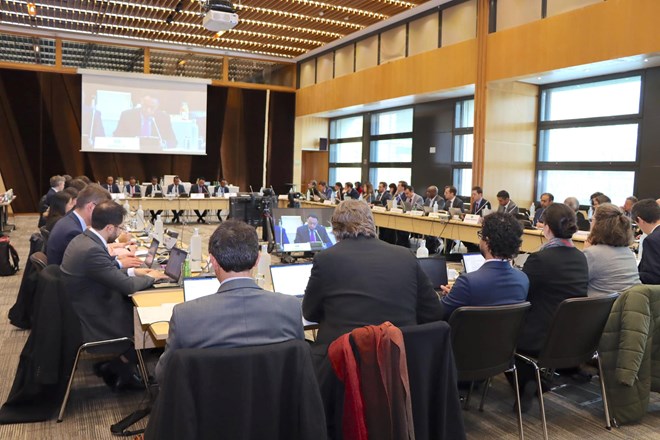
The Paris Club, a collection of some of the world’s wealthiest creditor nations, has announced the cancellation of 99% of Somalia’s debt, in a major boost as the country continues its fragile economic recovery from an ongoing three-decade conflict.
In a statement released by the Paris Club, which is run by senior officials from the French Treasury, Somalia’s creditors, including the US, UK, Russia, Norway, and Japan, announced the cancellation of $2bn owed to club members as of January 2023.
The Paris Club said part of the debt would be waived on a “voluntary and bilateral basis” between individual countries that Somalia had borrowed from and the rest under the Heavily Indebted Poor Countries Initiative (HIPC), an IMF and World Bank scheme to support poorer countries with unsustainable debt levels.
In a post on X, formerly Twitter, Somalia’s finance minister, Bihi Eged, said: “Achieving full debt relief will transform Somalia’s future and allow our government to create fiscal space for basic public services.” Somalia’s information minister, Daud Aweis, said on X that the agreement marked a “big milestone in the country’s journey to financial recovery”.
Kristalina Georgieva, the managing director of the IMF, also welcomed the breakthrough, calling it a “major stride towards economic development and poverty reduction” for Somalia.
The British ambassador to Somalia, Mike Nithavrianakis, said the UK, one of Somalia’s lenders, was ready “to honour our commitment to full debt relief”.
Somalia qualified for debt cancellation under the HIPC last December, making it eligible for up to $4.5bn of debt relief and beginning the normalisation of its relations with international financial markets after three decades of exclusion.
The HIPC initiative helps countries that are laden with debt to restructure their budgets, improve transparency and target poverty reduction, in preparation for debt relief.
The decision by the Paris Club represents the first major step toward financial normalisation for Mogadishu following the HIPC programme.
Welcoming the December completion of the HIPC programme in a column for the Guardian, the country’s president, Hassan Sheikh Mohamud, said: “Somalia’s debt relief journey was no simple task; it took nearly a decade, three different administrations, two presidents and four finance ministers to attain debt relief from the boards of the World Bank and IMF on 13 December.”
“Debt relief,” he said, “is just the beginning of real change for Somalia.”
The majority of Somalia’s debt was accumulated during the years of Siad Barre’s military dictatorship, which collapsed in 1991, with interest accruing on the loans since then.
Uweis Abdullahi Ali, an economist at the Heritage Institute, a Mogadishu-based thinktank, said the debt relief “is a big achievement for Somalia and allows [it] to begin re-engaging with credibility with international financial markets”.
Ali added that although Mogadishu was now able to access a wider array of concessional loans, grants and more financial instruments to help finance delivery of public services, the government should strengthen its ability to domestically generate revenue.
“The government should prioritise the new fiscal space for expanding essential services such as education and health and other productive investments that will bear fruit to the domestic economy.”
Ethiopia releases former Somali region president Abdi Iley, signals reconciliation
Ethiopia releases former Somali region president Abdi Iley, signals reconciliation

Source: Hiiraan Online, Friday March 15, 2024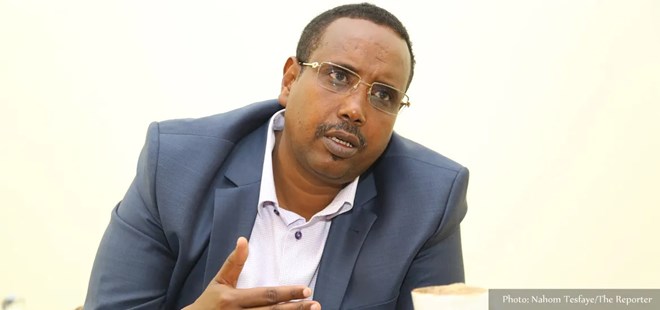
Addis Ababa (HOL) – Ethiopia’s justice ministry announced the release of Abdi Mohamed Omar, also known as Abdi Iley, the former president of the country’s Somali region, after five years of incarceration. State media reported that the charges against him were dropped “for the sake of people’s interest,” marking a step toward national reconciliation amid ongoing internal conflicts.
Abdi Iley’s arrest in August 2018 came amid severe unrest in the Somali region, a volatile area marred by ethnic violence and political instability. His detainment followed deadly clashes in Jijiga, the regional capital, and surrounding areas, resulting in significant casualties and displacement. The 2018 violence, triggered by the Ethiopian military’s intervention, marked a peak in the region’s ongoing turmoil.
Accused of inciting violence and overseeing human rights abuses, Abdi’s leadership faced intense scrutiny. Rights groups and victim accounts have linked his regime to widespread misconduct, including the use of force against political adversaries and civilians.
The termination of Abdi’s charges by the Ethiopian government highlights its current approach to resolving the nation’s deep-rooted ethnic tensions. This move aligns with Prime Minister Abiy Ahmed’s broader political reform and national healing agenda.
Simultaneously, Kinfe Dagnew, a former head of the military corporation, was released. Arrested on similar grounds in 2018, Kinfe’s release, alongside Abdi’s, reflects the intricate challenges of Ethiopia’s political and social landscape.
Despite being Ethiopia’s second-largest region, the Somali region remains one of its most tumultuous. The 2018 clashes and subsequent military presence underscore the ongoing struggle between governance and regional autonomy.
The decision to free Abdi Iley has stirred varied responses, underscoring Ethiopia’s complexity of balancing justice with reconciliation efforts. This move raises questions about accountability and the path forward for those impacted by the Somali region’s strife.
The narrative also draws attention to personal stories emerging from the unrest, such as Rahma Mohamud Haybe’s release, a former official under Abdi’s rule, and a young boy detained during the Jijiga riots. These accounts add a human element to the broader political discourse and further illustrate the profound human impact of Ethiopia’s ethnic and political conflicts.
Sudan army general rules out Ramadan truce unless RSF leaves civilian sites
Sudan army general rules out Ramadan truce unless RSF leaves civilian sites
Source: Aljazeera, Sudan general rejects truce after UNSC calls for cessation of hostilities during the Islamic holy month.
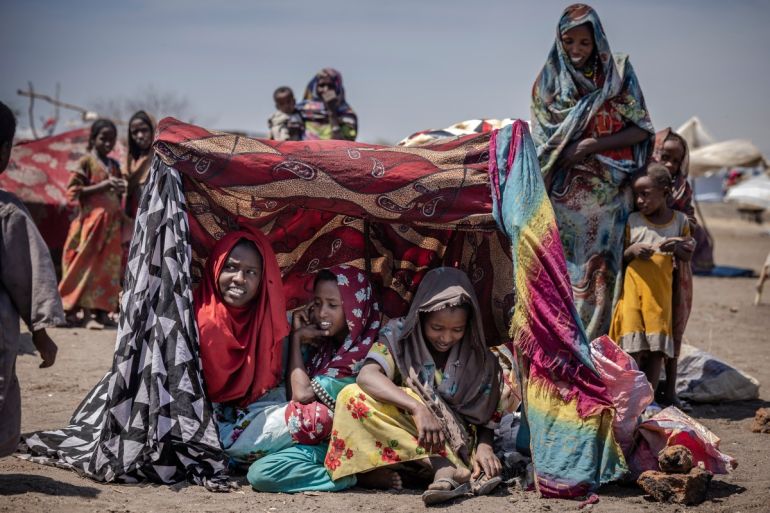
Published On 10 Mar 202410 Mar 2024
Senior Sudanese Armed Forces General Yasser al-Atta has said there will be no truce in Sudan during the Muslim holy month of Ramadan unless the Rapid Support Forces (RSF) paramilitary group leaves the homes and sites of civilians.
The statement follows an appeal by the United Nations Security Council (UNSC) for a truce during Ramadan, which begins this week. The RSF said it welcomed the truce call.
KEEP READING
list of 4 itemslist 1 of 4
Photos: Sudanese refugees face gruelling wait in crammed South Sudan camps
list 2 of 4
UN official warns of possible war crimes, rape as a weapon in Sudan
list 3 of 4
Sudanese democracy should not be US-made
list 4 of 4
‘Don’t let the other soldiers watch’: Rape as a weapon of war in Sudan
end of list
Al-Atta’s statement, issued on the army’s official Telegram channel on Sunday, cited recent military advances by the army in Omdurman, part of Sudan’s wider capital.
It said there could be no Ramadan truce unless the RSF complied with a commitment made in May last year at Saudi and US-mediated talks in Jeddah to withdraw from civilian homes and public facilities.
It also said Mohamed Hamdan Dagalo, the RSF leader commonly known as Hemedti, should not play a role in Sudan’s future politics or military.
The statement follows the UNSC’s appeal for a respite from the 11-month-old conflict during Ramadan, which is expected to begin on Monday or Tuesday, depending on the sighting of the crescent moon.
Fourteen countries on the 15-member council on Friday backed the resolution proposed by the United Kingdom, with only Russia abstaining from the vote.
The resolution called on “all parties to the conflict to seek a sustainable resolution to the conflict through dialogue”.
Fighting between the army, led by General Abdel Fattah al-Burhan, and the RSF erupted in mid-April 2023.
Tens of thousands of people have since been killed, 8.3 million have been forcibly displaced, and the UN says nearly 25 million people – half of Sudan’s population – are in need of aid
MV Abdullah, carrying 23 crew, seized by pirates heading towards Somali coast
MV Abdullah, carrying 23 crew, seized by pirates heading towards Somali coast

Source_ Hiiraan, Thursday March 14, 2024
Mogadishu (HOL) – Somali pirates, who hijacked the Bangladesh-flagged ship MV Abdullah from the Indian Ocean on Tuesday, are taking the vessel towards the Somali coast, with 23 sailors onboard currently held hostage. Rescue operations have been initiated following the crew’s broadcasted plea for assistance.
A map from the International Maritime Bureau (IMB) details the hijacked ship’s course, indicating it is 72 miles from Garakad, Somalia. At its current speed, the MV Abdullah is expected to reach Somali waters within a day or two. The hijacking occurred approximately at 1:30 p.m. Bangladesh time, as the vessel was transporting 50,000 tonnes of coal from Maputo, Mozambique, to Al Hamriyah in the UAE.
The pirates who hijacked the vessel demanded a $5 million ransom for the ship and its 23 crew members, or threatened to kill everyone.
KSRM Group’s media consultant, Mizanul Islam, confirmed the safety of all crew members aboard the hijacked ship in a statement to United News of Bangladesh, noting, “The ship should arrive at the Somali anchorage by Friday morning.” He emphasized that efforts are underway to ensure the safety and eventual release of the crew.
The ship, operated by SR Shipping, was en route from Mozambique to Dubai at the time of the attack. The owners have publicly acknowledged the hijacking and are actively pursuing the sailors’ release.
This incident recalls a similar event from December 5, 2010, when the MV Jahan Moni, another ship belonging to the same company, was seized by Somali pirates in the Arabian Sea. That ordeal involved the capture of 25 Bangladeshi sailors and 26 others, including the captain’s wife, who was held hostage for 100 days before their release on March 14, 2011, following negotiations. They were returned to Bangladesh the subsequent day.
New Normal in the Khartoum Capital Region
New Normal in the Khartoum Capital Region
Source: Aljazeera posted on 8 March 2024 a 20-minute podcast titled “The Take: Sudan’s New Normal” with Hiba Morgan, Aljazeera’s correspondent resident in Omdurman.
Hiba Morgan is one of the very few journalists to remain in the Khartoum capital region and to continue reporting on the situation in Sudan. In this podcast, she describes her personal challenges and for many residents almost impossible conditions of living in an urban area frequently subject to artillery fire between the Sudan Armed Forces and the paramilitary Rapid Support Forces.
Green Climate Fund announces $100 million investment partnership for Somalia’s climate action
Green Climate Fund announces $100 million investment partnership for Somalia’s climate action

Hassan Istiila
Source: Hiiraan Online, Wednesday March 13, 2024
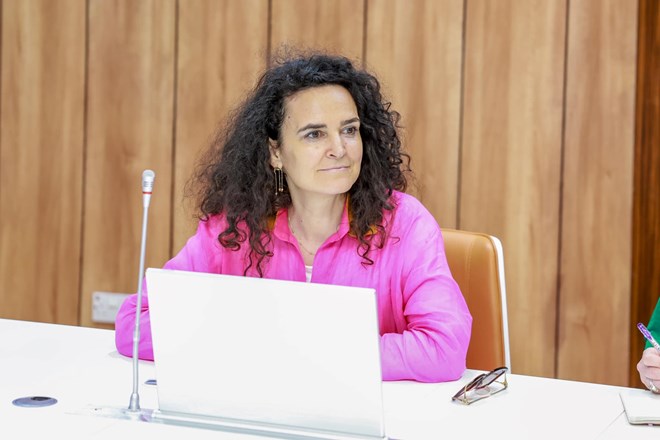
Green Climate Fund (GCF) Executive Director Mafalda Duarte visits Prime Minister’s Office
Mogadishu (HOL) – The Green Climate Fund (GCF) announced on Tuesday a $100 million investment partnership to accelerate climate action programs and provide readiness support to Somalia over the next year.
Green Climate Fund (GCF) Executive Director Mafalda Duarte, who led the first-ever GCF delegation to Somalia, announced the investment partnership in Mogadishu after a series of meetings with President Hassan Sheikh, Prime Minister Hamza Barre, Minister of Environment and Climate Change Khadija Mohamed Al-Makhzoumi, cabinet ministers, representatives from the private sector, and civil society.
advertisements
“Somalia is the second most vulnerable country to climate change in the world, despite contributing only 0.03 percent of total global greenhouse gas emissions. The interlinked impact of climate change and lack of security has had a devastating effect on people, causing some 43,000 excess deaths in 2022 due to drought, displacing more than six million people, and pushing Somalis away from their homes into overcrowded towns and cities,” said Duarte.
“Recurrent drought and regular flooding lead to failed crops, livestock losses, and the country’s chronic food insecurity problems. GCF is committed to working with the Government of Somalia and its partners to address better the extreme vulnerability the country and its population face,” she added.
GCF also pledged to explore direct readiness support of up to USD 7 million to further capacitate the Ministry of Environment and Climate Change in its technical and coordination role. Additionally, the GCF reiterated its commitment to a strategy of investments and readiness support for Somalia by mid-2025 and a long-term commitment to empowering Somalia to develop priority projects and subsequent investments.
Duarte released her 50by30 vision at the UN Climate Action Summit in September 2023, announcing intentions to build a fund capable of impactfully and efficiently managing USD 50 billion by 2030 – clearly focusing on helping the most vulnerable countries and communities.
Somalia has achieved significant progress in recent years, especially in establishing political institutions, robust public financial management systems and improving security.
Acknowledging the maturation of Somalia’s institutional environment, Duarte emphasized the need for climate finance modalities to adapt: “GCF is committed to supporting the government with what it needs so that together with the flourishing private sector and civil society organizations it can develop priority projects and investments to deliver sustainable, integrated and impactful climate action for durable peace and prosperity.”
The Green Climate Fund (GCF) is the world’s largest dedicated climate fund, with a mandate to foster a paradigm shift towards low-emission, climate-resilient development pathways in developing countries. GCF has over 250 projects and a portfolio of USD 13.9 billion (USD 53 billion, including co-financing), delivering transformative climate action in more than 129 developing countries.
How Somalia-Turkey defence deal torpedoed a rival UAE agreement
How Somalia-Turkey defence deal torpedoed a rival UAE agreement

Source: Middle East Eye, Wednesday March 13, 2024
By Ragip Soylu in Ankara
When it seemed like Erdogan was heading out the door, Mogadishu hedged its bets with Abu Dhabi. Now, it is looking towards Ankara once again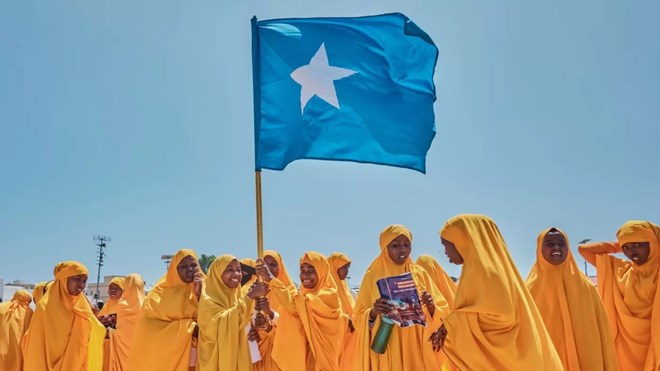
Students wave a Somali flag during a protest following the port deal signed between Ethiopia and Somaliland, in Mogadishu (AFP/Abdishukri Haybe)
When the Somali cabinet approved a military cooperation deal with the United Arab Emirates in February 2023, there was an uproar in Mogadishu. Parliamentarians believed the agreement was contrary to Somali sovereignty.
Since the early 90s, Somalia has grappled with war lords and armed groups like al-Shabab and earned a reputation as a failed state.
Yet, state-building efforts have borne fruit in recent years. In December, the UN removed its arms embargo on the country, recognising the progress the Somali government has made in terms of institutionalising its democracy and the constitution.
However, the Somali government is still in need of foreign aid. It received $2.4bn development aid from donors like the EU, US, Turkey, Qatar and the UAE in 2021.
But on top of this, the government also needs security aid and robust training for its security services.
Despite this, some MPs thought the deal with the UAE went too far.
The agreement, seen by Middle East Eye, mandates the UAE to “carry out military and security operations, including land, sea and air operations, which it deems appropriate, to eliminate terrorist elements”. It also authorises Abu Dhabi to “use the territory of” Somalia.
The UAE “shall have the right to use the land ports, sea ports and airports of the territory of the Federal Republic of Somalia” and establish military and training bases to further its operations.
The most controversial part of the agreement, however, was the fact that it gave the UAE military total immunity, which angered Somalis.
“All persons working under this agreement shall be granted safeguards and immunity against any international, legal, or administrative liability” in Somalia, the deal states.
“Persons working under this agreement can’t be subject to any national or international procedure or claim or the application of a judgement rendered against them” in Somalia during the implementation of the agreement.
Heavy investment
Immediately after Somalia’s cabinet gave approval, the UAE redeployed some of the Somali forces it trained in Uganda back to the country, paying their salaries and expenditure. A month later, the Emirati military also began to construct a new base owned and operated by the UAE in the southern Jubaland region.
A year on, the Somali parliament is still yet to ratify the agreement to formally complete the constitutional procedure.
In contrast, MPs swiftly approved a similar defence and commerce deal with Turkey over a few weeks last month.
Two sources familiar with Mogadishu’s thinking said when President Hassan Sheikh Mohamud’s government signed the deal with the UAE, it had in mind the May 2023 Turkish presidential elections, which every poll suggested Recep Tayyip Erdogan was likely to lose.
Under Erdogan’s watch, Ankara has heavily invested in Somalia since 2011, extending more than $1bn humanitarian aid, establishing the country’s largest overseas embassy, and setting up a military base in Mogadishu to train one-third of the Somali military.
Turkey-supplied drones are currently operating against al-Shabab, while Turkish firms run Mogadishu airport and port.
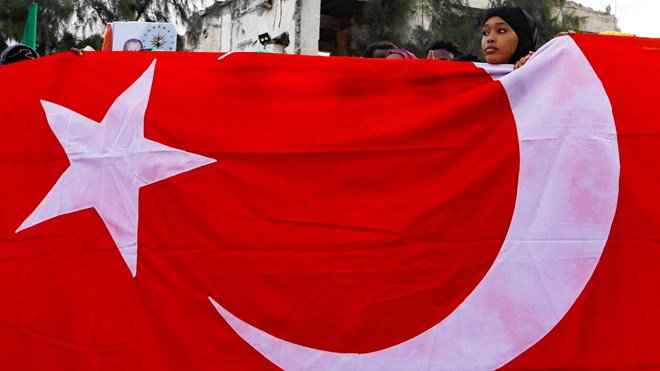
Somali supporters of Recep Tayyip Erdogan hold Turkey’s flag during celebrations after the presidential election, in Mogadishu 29 May 2023 (Reuters/Feisal Omar)
Erdogan’s possible departure could have denied Somalia a crucial backer. The Turkish opposition was quite clear that it didn’t feel the need to maintain such an assertive foreign policy in places like the Horn of Africa, nor did it have any willingness to spend any money or time on the East African nation.
So, according to the sources, Somalia approached Abu Dhabi to secure its long-term fight against militant groups and fill the possible vacuum that Erdogan’s departure would bring.
Erdogan, however, defied expectations and won the election, coming out on top in a second round.
Though this was no doubt a factor in Somalia’s shifting response to the UAE deal, what really changed Mogadishu’s thinking on Turkey was Ethiopia’s developing ties with the breakaway Somaliland state earlier this year, which deeply concerned Mogadishu.
In January, Ethiopia signed an agreement that grants it naval and commercial access to ports along Somaliland’s coast, in exchange for recognition of the region’s independence. Mogadishu declared the pact illegal.
Somalia lacks an air force as well as a navy. So, any Ethiopian attempt to impose its will in Somalia’s waters wouldn’t receive any response from Somali forces.
But Turkey could offer a counterbalance. It already has a military base and warships that operate off the coast of Somalia as part of a UN anti-piracy force.
Qatar concerns
Then came the defence deal with Turkey, whose contents are still kept confidential by the respective governments. Reportedly it mandates Ankara to protect Somali sea waters against infringements for the next 10 years. Some Ankara insiders say the deal is also backed by Qatar, the UAE’s Gulf rival.
“The United Arab Emirates is likely the country most disturbed by the Turkey-Somalia security and defence agreement,” wrote Mehmet Ozkan, a professor at the National Defence University in Turkey.
“The UAE has been conducting serious diplomacy for the last year to sign a very similar or even more advanced security agreement with Somalia. However, the response from Somalia has been reluctant – which is why there is both reaction and disappointment on the part of the UAE about this development.”
Turkish officials say the deal hasn’t caused any fallout with Abu Dhabi. Erdogan has frequently visited the Emirates since 2021, when both countries officially reconciled and signed an investment plan for Ankara.
On Monday Erdogan called UAE President Mohammed bin Zayed, congratulating him on his birthday and inviting him to Turkey for a high-level meeting.
Yet Abu Dhabi’s passive-aggressive and indirect response to the Turkey-Somalia deal suggests it has some quarrels regarding the possible Qatari role in the deal.
Emirati officials told Mogadishu earlier this month that they would end $5m financial support to some Somali military forces.
“The Emiratis have ceased payments for five brigades positioned outside Mogadishu, maintaining financial support only for two brigades safeguarding the city and one special brigade assigned to protect vital installations,” the Somali Digest reported.
Even though the decision was also related to the fact that an al-Shabab attack in early February against a UAE base in Somalia killed a high-ranking Emirati official, Colonel Mohamed Mubarak, it is widely considered a response to the Somali-Turkish deal.
One source suggested that the UAE’s main concern is possible Qatari cooperation with Somalia rather than Turkey, whom Emiratis enjoy a closer relationship with.
How Somalia-Turkey defence deal torpedoed a rival UAE agreement
How Somalia-Turkey defence deal torpedoed a rival UAE agreement

Source: Middle Eye, Wednesday March 13, 2024
By Ragip Soylu in Ankara
When it seemed like Erdogan was heading out the door, Mogadishu hedged its bets with Abu Dhabi. Now, it is looking towards Ankara once again
Students wave a Somali flag during a protest following the port deal signed between Ethiopia and Somaliland, in Mogadishu (AFP/Abdishukri Haybe)
When the Somali cabinet approved a military cooperation deal with the United Arab Emirates in February 2023, there was an uproar in Mogadishu. Parliamentarians believed the agreement was contrary to Somali sovereignty.
Since the early 90s, Somalia has grappled with war lords and armed groups like al-Shabab and earned a reputation as a failed state.
Yet, state-building efforts have borne fruit in recent years. In December, the UN removed its arms embargo on the country, recognising the progress the Somali government has made in terms of institutionalising its democracy and the constitution.
However, the Somali government is still in need of foreign aid. It received $2.4bn development aid from donors like the EU, US, Turkey, Qatar and the UAE in 2021.
But on top of this, the government also needs security aid and robust training for its security services.
Despite this, some MPs thought the deal with the UAE went too far.
The agreement, seen by Middle East Eye, mandates the UAE to “carry out military and security operations, including land, sea and air operations, which it deems appropriate, to eliminate terrorist elements”. It also authorises Abu Dhabi to “use the territory of” Somalia.
The UAE “shall have the right to use the land ports, sea ports and airports of the territory of the Federal Republic of Somalia” and establish military and training bases to further its operations.
The most controversial part of the agreement, however, was the fact that it gave the UAE military total immunity, which angered Somalis.
“All persons working under this agreement shall be granted safeguards and immunity against any international, legal, or administrative liability” in Somalia, the deal states.
“Persons working under this agreement can’t be subject to any national or international procedure or claim or the application of a judgement rendered against them” in Somalia during the implementation of the agreement.
Heavy investment
Immediately after Somalia’s cabinet gave approval, the UAE redeployed some of the Somali forces it trained in Uganda back to the country, paying their salaries and expenditure. A month later, the Emirati military also began to construct a new base owned and operated by the UAE in the southern Jubaland region.
A year on, the Somali parliament is still yet to ratify the agreement to formally complete the constitutional procedure.
In contrast, MPs swiftly approved a similar defence and commerce deal with Turkey over a few weeks last month.
Two sources familiar with Mogadishu’s thinking said when President Hassan Sheikh Mohamud’s government signed the deal with the UAE, it had in mind the May 2023 Turkish presidential elections, which every poll suggested Recep Tayyip Erdogan was likely to lose.
Under Erdogan’s watch, Ankara has heavily invested in Somalia since 2011, extending more than $1bn humanitarian aid, establishing the country’s largest overseas embassy, and setting up a military base in Mogadishu to train one-third of the Somali military.
Turkey-supplied drones are currently operating against al-Shabab, while Turkish firms run Mogadishu airport and port.

Somali supporters of Recep Tayyip Erdogan hold Turkey’s flag during celebrations after the presidential election, in Mogadishu 29 May 2023 (Reuters/Feisal Omar)
Erdogan’s possible departure could have denied Somalia a crucial backer. The Turkish opposition was quite clear that it didn’t feel the need to maintain such an assertive foreign policy in places like the Horn of Africa, nor did it have any willingness to spend any money or time on the East African nation.
So, according to the sources, Somalia approached Abu Dhabi to secure its long-term fight against militant groups and fill the possible vacuum that Erdogan’s departure would bring.
Erdogan, however, defied expectations and won the election, coming out on top in a second round.
Though this was no doubt a factor in Somalia’s shifting response to the UAE deal, what really changed Mogadishu’s thinking on Turkey was Ethiopia’s developing ties with the breakaway Somaliland state earlier this year, which deeply concerned Mogadishu.
In January, Ethiopia signed an agreement that grants it naval and commercial access to ports along Somaliland’s coast, in exchange for recognition of the region’s independence. Mogadishu declared the pact illegal.
Somalia lacks an air force as well as a navy. So, any Ethiopian attempt to impose its will in Somalia’s waters wouldn’t receive any response from Somali forces.
But Turkey could offer a counterbalance. It already has a military base and warships that operate off the coast of Somalia as part of a UN anti-piracy force.
Qatar concerns
Then came the defence deal with Turkey, whose contents are still kept confidential by the respective governments. Reportedly it mandates Ankara to protect Somali sea waters against infringements for the next 10 years. Some Ankara insiders say the deal is also backed by Qatar, the UAE’s Gulf rival.
“The United Arab Emirates is likely the country most disturbed by the Turkey-Somalia security and defence agreement,” wrote Mehmet Ozkan, a professor at the National Defence University in Turkey.
“The UAE has been conducting serious diplomacy for the last year to sign a very similar or even more advanced security agreement with Somalia. However, the response from Somalia has been reluctant – which is why there is both reaction and disappointment on the part of the UAE about this development.”
Turkish officials say the deal hasn’t caused any fallout with Abu Dhabi. Erdogan has frequently visited the Emirates since 2021, when both countries officially reconciled and signed an investment plan for Ankara.
On Monday Erdogan called UAE President Mohammed bin Zayed, congratulating him on his birthday and inviting him to Turkey for a high-level meeting.
Yet Abu Dhabi’s passive-aggressive and indirect response to the Turkey-Somalia deal suggests it has some quarrels regarding the possible Qatari role in the deal.
Emirati officials told Mogadishu earlier this month that they would end $5m financial support to some Somali military forces.
“The Emiratis have ceased payments for five brigades positioned outside Mogadishu, maintaining financial support only for two brigades safeguarding the city and one special brigade assigned to protect vital installations,” the Somali Digest reported.
Even though the decision was also related to the fact that an al-Shabab attack in early February against a UAE base in Somalia killed a high-ranking Emirati official, Colonel Mohamed Mubarak, it is widely considered a response to the Somali-Turkish deal.
One source suggested that the UAE’s main concern is possible Qatari cooperation with Somalia rather than Turkey, whom Emiratis enjoy a closer relationship with.
Ethiopia’s Tigray region is now peaceful, but extreme hunger afflicts its children

Source: AP, By Amir Aman Kiyaro
Sunday March 10, 2024
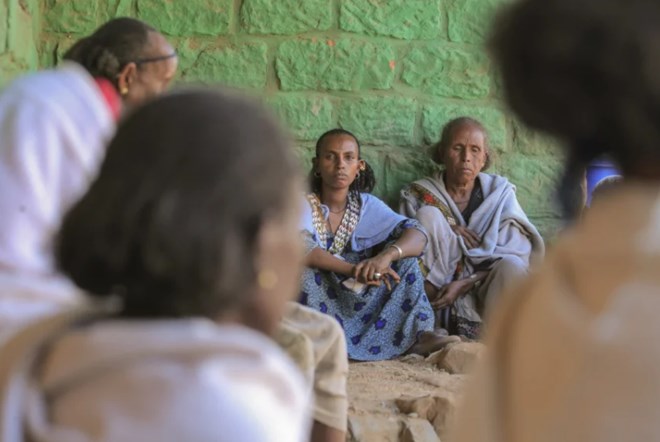
(Amir Aman Kiyaro/AP)
NEBAR HADNET, Ethiopia — The cruel realities of war and drought seem to have merged for Tinseu Hiluf, a widow living in the arid depths of Ethiopia’s Tigray region who is raising four children left behind by her sister’s recent death in childbirth.
A two-year war between federal troops and regional forces killed one of her own sons, the rest of whom are already adults. And now, a lack of food stemming from the region’s drought has left the youngest of the children she is raising malnourished.
She tries to forage seeds among the scarce greenery of the desert’s yellow, rocky landscape. But she recently resorted to traveling to the nearby Finarwa health center in southeastern Tigray to try to keep the 1-year-old baby alive.
“When hungry, we eat anything from the desert,” she said. “Otherwise, nothing.”
She joined several other mothers seeking help at the center in the remote administrative area of Nebar Hadnet. A mother of five complained that she had no breastmilk for her eight-month-old baby. Another with 1-year-old twins said she needed sachets of baby food to keep “my babies alive.”
Tigray is now peaceful but war’s effects linger, compounded by drought and a level of aid mismanagement that caused the U.N. and the U.S. to temporarily suspend deliveries last year.
Once-lush fields lie barren. Mothers, faces etched with worry, watch helplessly as their children weaken from malnutrition. Nearly 400 people died of starvation in Tigray and the neighboring Amhara region in the six months leading to January, the national ombudsman revealed in January, a rare admission of hunger-related deaths by a federal government.
Most of those deaths were recorded in Tigray, home to 5.5 million people.
Until the signing of a peace agreement in November 2022, the region was the scene of a deadly war between federal troops and forces loyal to the region’s now-ousted ruling party. But months after the end of the conflict, the U.N. and the U.S. halted food aid for Tigray because of a massive scheme by Ethiopian officials to steal humanitarian grain.
An inadequate growing season followed.
Persistent insecurity meant only 49% of Tigray’s farmland was planted during the main planting season last year, according to an assessment by U.N. agencies, NGOs and the regional authorities, and seen by the AP. Crop production in these areas was only 37% of the expected total because of drought. In some areas the proportion was as low as 2%, that assessment said.
The poor harvest prompted Tigray’s authorities to warn of an “unfolding famine” that could match the famine of 1984-5, which killed hundreds of thousands of people across northern Ethiopia, unless the aid response was scaled up. Food deliveries to Tigray in the second half of last year, but only a small fraction of needy people in Tigray are receiving food aid, humanitarian workers say.
Finarwa, a farming community of about 13,000 people, is among the worst-hit places.
The town’s health center still has war-damaged equipment and some of its rooms appear abandoned. Tadesse Mehari, the officer in charge of the clinic, said the lack of food at homes in the community has forced children to flee and beg in nearby towns.
“Nothing here to eat. So, for the sake of getting food and to save their lives, they are displaced anywhere, far from here,” he said. “So, in this area, a lot of people are suffering. They are starved. They are dying due to the absence of food.”
Some local leaders, feeling helpless, have been turning their own people away
Hayale Gebrekedian, a Nebar Hadnet district leader for five years, listened to the pleas of villagers who streamed into his office one recent afternoon. A widow named Serawit Wolde with 10 children was in tears as she recounted that five of them were falling ill from hunger.
“Please, any help,” she told Hayale.
Hayale told the woman he had nothing to give. “There simply isn’t any (food),” he said.
Hayale later told the AP, “This place used to be a source of hope, even for those displaced by the war. We had enough for everyone, but now we can’t even feed ourselves.”
“The war took everything,” he said. There’s nothing left.”
Havale said access to water was an additional challenge. Of the 25 wells that once sustained the community and its animals, only five remained functional. People now trek for over an hour and a half to access water, he said.
The region’s drought has meant that some areas that usually get about 60 days of rain during the rainy season have seen only a few.
Some farmers aren’t giving up.
Haile Gebre Kirstos, 70, continued to plough his parched land and plant sorghum in a village in Messebo, although rain fell “only two days during the last rainy season,” he said.
Once lush and teeming with livestock, the land is now a barren expanse, yet he remained hopeful even after the failure of the previous harvest.
Although the ploughing usually doesn’t begin until the rainy season in May or June, this year he started the work early, driven by extreme need. He spoke of farmers who have sold their oxen and farming tools to feed their families.
For him, the memory of the 1980s famine is haunting. “It affected the entire region then,” he said. “Now, in some districts, it’s either as bad as the 1980s, or even worse.”
Türkiye Signs Defense Deal with Somalia and Reiterates Support for Sovereignty
Türkiye Signs Defense Deal with Somalia and Reiterates Support for Sovereignty
Source: Al-Monitor published on 7 February 2024 an article titled “Turkey, Somalia Sign Defense Deal in Wake of Ethiopia-Somaliland Agreement” by Ezgi Akin.
Somalia and Türkiye signed this week an agreement on the fight against terrorism and military-financial cooperation. Türkiye reiterated its support for Somalia’s territorial integrity and sovereignty in the wake of Ethiopia’s willingness to consider the recognition of an independent Somaliland.
